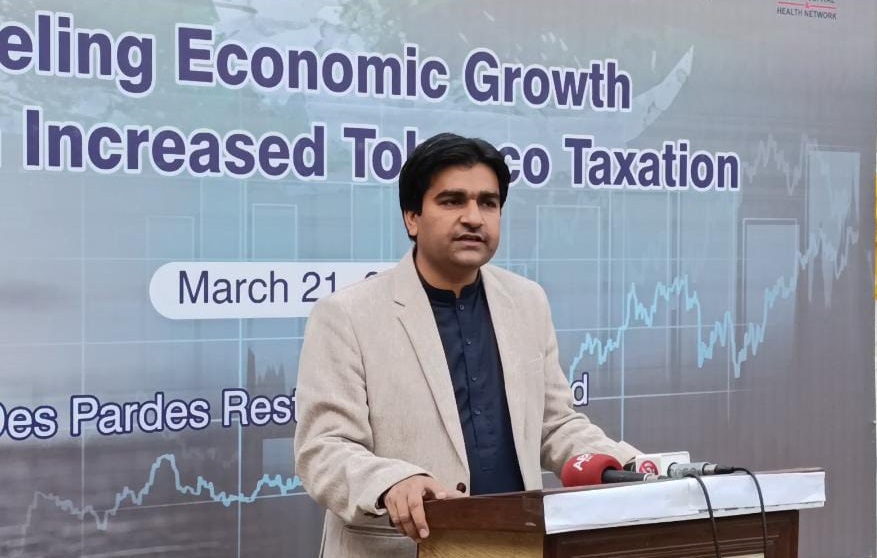Mohsin Siddiqui (Chief Reporter)
Islamabad: Health activists in Pakistan have commended the International Monetary Fund (IMF) for advocating a uniform tax structure on tobacco products. At an event organized by the Society for the Protection of the Rights of the Child (SPARC) titled “Fueling Economic Growth through Increased Tobacco Taxation,” activists urged the Government of Pakistan to adopt a Single Tier Tobacco Taxation System, as proposed by the IMF. This move aims to streamline taxation, enhance revenue generation, and alleviate the healthcare burden posed by tobacco-related diseases.
Malik Imran Ahmed, Country head of the Campaign for Tobacco Free Kids (CTFK), highlighted the synergy between the IMF’s recommendations and Pakistan’s ongoing fiscal discussions. These discussions seek to address fiscal weaknesses, promote economic recovery, and foster inclusive growth. Imran stressed the urgency of integrating tobacco taxation reform into broader fiscal strategies to improve public finances and ensure debt sustainability.
Furthermore, Malik Imran emphasized that tobacco taxation reform is not only a fiscal necessity but also a critical public health priority. Despite significant taxes on cigarettes, the revenue generated falls short of covering healthcare costs incurred due to smoking-related illnesses. In the fiscal year 2022-23, taxes covered only 16% of these expenses, signaling a decline from 19.5% in 2019.
Dr. Khalil Ahmad Dogar, Program Manager at SPARC, highlighted the pervasive use of tobacco in Pakistan, with approximately 31.9 million adults reported as current tobacco users. This alarming prevalence contributes to over 160,000 smoking-related deaths annually, accounting for a substantial portion of the nation’s GDP.
Dr. Khalil stressed the urgency of implementing the IMF-recommended Single Tier Tobacco Taxation System to bridge the gap between tax revenue and healthcare costs. This reform, he argued, would not only boost revenue but also mitigate the health and economic consequences of tobacco consumption.




